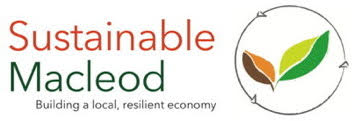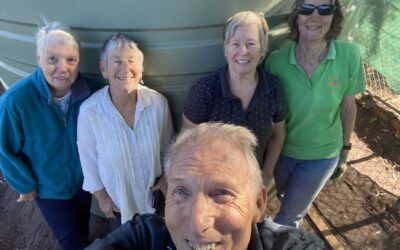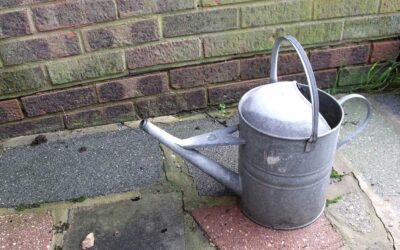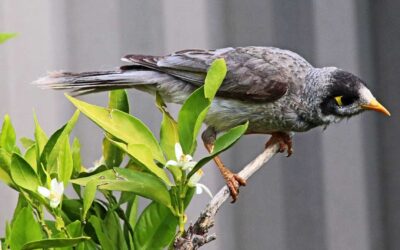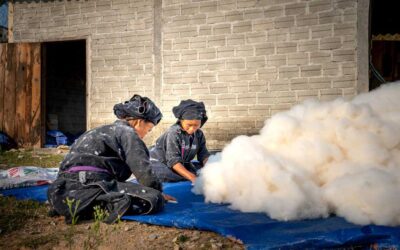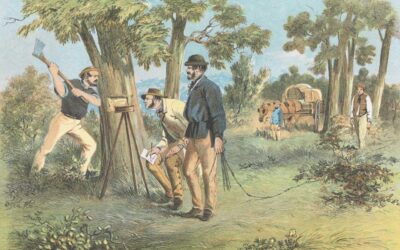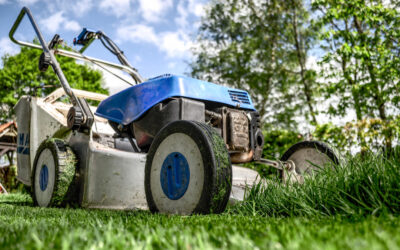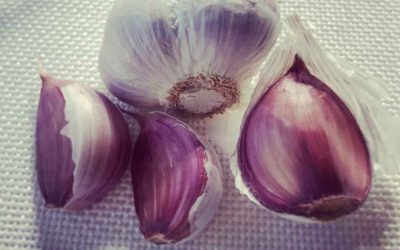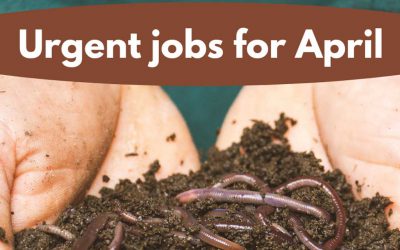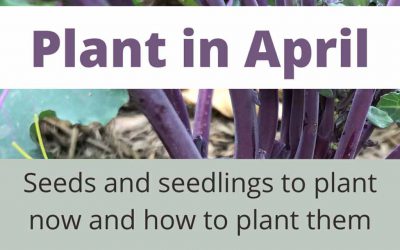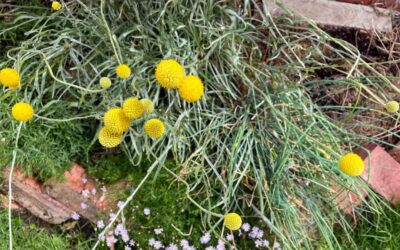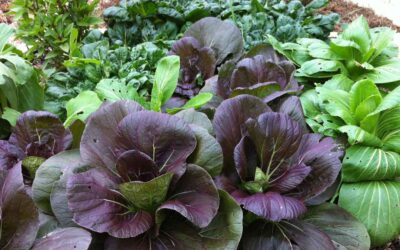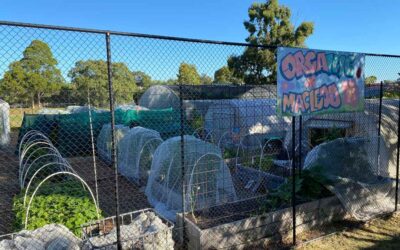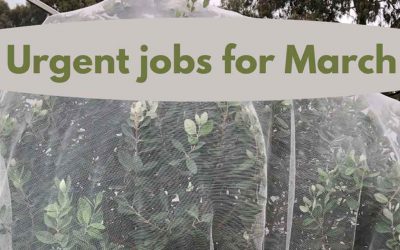Blog
Our blog features a variety of gardening and growing tips on topics such as soil biology, wicking bed construction, composting, grafting, pruning, water-saving and irrigation. Plus we regularly post recipes to help you make the most of the ‘seasonal glut’ and tips on how to live in a more sustainable way.The tanks are in!
Sustainable Macleod Community Garden, courtesy of the Education Department, now has 2 new 15,000-litre tanks in place, and a water delivery has filled them. Last August the mains water line - which runs under the school oval - disintegrated and could not be repaired....
Wetting agents for soil: yes or no?
Have you ever tried to wash greasy dishes in hot water without detergent? Nothing much happens until you add a few drops of detergent to the water - then hey presto, clean, sparkling dishes emerge. What causes this is the surfactants in the detergent, and it is the...
The noisy miner problem
In our backyards and parks, there's a bird causing quite a ruckus: the noisy miner (Manorina melanocephala). These birds are indigenous but have very much made themselves at home in urban environments. Unfortunately, they're not very friendly neighbours and have...
Fast fashion more dangerous than we think!
The kernel that generated this article was my investigation into why stains are so hard to remove from some fabrics. The short answer is that over 85% of cheaper garments are made from petrochemicals - oil and coal - which absorb 'stains' and don't release them easily...
Robert Hoddle – chains and grids in terra nullius
Preamble On a recent heritage walk in Lower Plenty-Yallambie, I was asked how colonial surveyors actually measured the Crown Land Portions, and why Martins Lane was called 50 Links Occupation Road. People looked unconvinced when I talked about surveyors dragging a...
The humble lawnmower
The arrival of the 2 new ride-on battery mowers for Banyule City Council’s Parks staff to use prompted me to revisit an article I wrote last year. The article was about petrol-driven mowers contributing to climate change and local pollution of various kinds. Council’s...
Plant garlic in April in Melbourne
April and May are the months to plant garlic in Melbourne; the weather is cooling, there's rain and our beds are prepared. See March hint for bed preparation . If you have saved or bought Australian garlic that is rust free, the job is easy but if you have saved...
Urgent jobs in the garden for April
Save last seeds from the garden. Microwave, freeze, solarise or drown any fallen fruit or fruit infested with Queensland Fruit Fly or codling moth including quince, apples, citrus, guava, feijoa, berries and any other fruit growing in your garden. Check citrus for...
What to plant in April in Melbourne
Planting in April Your beds should by now be prepared for autumn planting. Check the weather forecast as far ahead as possible and wait until after any very warm/hot weather to plant to avoid seedlings bolting. Autumn/winter vegetables thrive in cool air and cool...
At last – an Australian fuel efficiency standard
The Australian Government plans to introduce a Vehicle Efficiency Standard, which is expected to come into effect from January 2025. This standard will bring Australia into line with Europe, the USA and Japan. The Coalition proposed a similar standard in 2016 and...
Five reasons why you should plant Billy Buttons
Summer is full of amazing flowers - dahlias, alyssum, chamomile, sweetpeas, cosmos, grevilleas, banksias, echinaceas, zinnias, marigolds and so the list goes on. Sunflowers are a long-time favourite summer stunner, but I reckon Billy Buttons are also at the top of my...
Growing exceptional mustard greens
While some mustard greens are widely used (especially in Asian cuisine), most are not well known in Australia. This is a pity as they are healthy, tasty, quick growing, and definitely best when harvested fresh from the garden. Just as mustard has quite a bite, so do...
Banyule Community Gardens Network
Banyule City Council has taken the initiative to explore setting up a Community Gardens Network. This has been welcomed by community gardens across Banyule. The Community Gardens Network met on February 2 for the first time on Zoom. Sustainable Macleod was represented...
Urgent jobs in the garden for March
Save seeds from the garden. Net fruit trees including citrus, guava, feijoa, pear, apple, quince, loquat, persimmon, grape and olive. Also net tomatoes, eggplants, capsicums and chillies. Use fine net, tying tightly at the base to prevent Queensland Fruit Fly entry...
Join Sustainable Macleod
Become a member and get access to the community garden, the tool library and our seed library. We welcome all members of the community and have regular events and workshops to enjoy.
